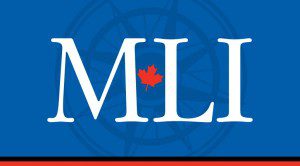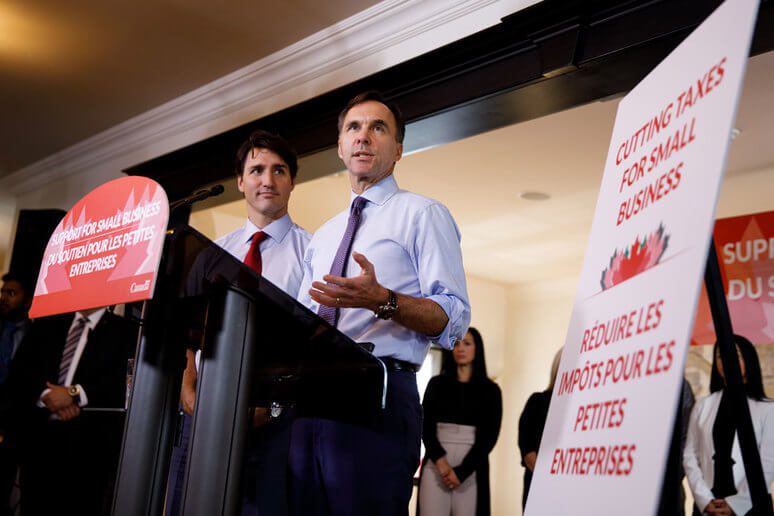 We should recognize the failures of Canada’s innovation policy industrial complex and strengthen our intellectual property regime, write Richard Owens and Sean Speer
We should recognize the failures of Canada’s innovation policy industrial complex and strengthen our intellectual property regime, write Richard Owens and Sean Speer
By Richard Owens and Sean Speer, October 2, 2018
The innovation file has bedevilled successive Canadian governments for more than three decades. Federal policy during this time has been marked by expert panels, independent studies, and billions of dollars in tax incentives, direct subsidies, and other government schemes.
The nearly $1-billion Superclusters Initiative is the most recent example. It’s bound to produce the same, underwhelming results as the other roughly $25 billion or so that the federal government currently spends on innovation-related programmes.
The one common thread to much of past and present innovation policy is that it’s mostly top-down and anti-market. There’s a persistent streak of central planning and industrial policy evident in much of what’s characterized as an innovation agenda. The outcomes are as predictable as Bombardier receiving another repayable (or non-repayable) payment.
We should be clear that this isn’t a critique of one government or one party. These problems transcend partisanship. It’s more a criticism of the “innovation policy industrial complex” that has come to dominate policy thinking in this area.
A litany of buzzwords, frameworks, and strategies obscures policy convergence in favour of a predisposition to more and higher government spending. It’s a good (or bad) example of Public Choice in action whereby self-interested academics, companies, and government departments and agencies conspire to advance the case for more spending irrespective of its outcomes.
There’s also great convergence about how innovation is conceptualized. It has come to be viewed principally through a lens of the information and communications technology and high-tech sectors. This is somewhat understandable. These sectors are key parts of Canada’s economy and hugely important for R&D spending, patents, and other key parts of innovation.
But the narrow focus on the “digital economy” neglects innovation across the economy including in traditional sectors such as agriculture, financial services, mining, oil and gas, and retail. It’s characterized by Prime Minister Trudeau’s famous observation about being “known for our resourcefulness” rather than our resources.
His simplistic formulation generated considerable attention back in 2016. But what makes it notable is not its novelty but rather how conventional it is. It basically sums up the underlying assumptions of so much innovation policy in Ottawa and across the country. Policymakers have come to see technology as an end rather than a means and, in so doing, fails to see how innovation is transforming traditional industries, processes, and employment. There’s as much or more innovation occurring in mines shafts in Northern Ontario as there is in the palatial MaRS Discovery building in downtown Toronto.
What’s the upshot for federal policymakers?
Canada’s poor innovation performance – including on business expenditure on research and development, patents, and productivity – is evidence that this conventional thinking is failing us. A new, heterodox approach is needed.
And the irony is that much-needed, new thinking is about returning to basics. The federal government must break the innovation-related industrial complex’s monopoly on innovation policy thinking and replace its ideas with a simpler, neutral model that rewards innovation and doesn’t prescribe certain types of innovation or specific industries.
The federal government must break the innovation-related industrial complex’s monopoly on innovation policy thinking.
What might such an agenda involve?
Strengthening Canada’s intellectual property regime would be first and foremost. MLI research has shown how strong intellectual property rights reward innovation and entrepreneurship and in turn encourage firms to invest in research and development and other pro-innovation activities. This should be intuitive: property rights enable investors and firms to realize financial gains from their ideas and technologies.
Unfortunately, opposite views seem to hold sway in Canada. Those views would have us weaken our intellectual property regime, lest Canada become too productive or the market prove itself. Research in no way supports such views.
Canada has consistently been identified as a laggard in its intellectual property regime. Successive Canadian governments have viewed intellectual property reform as a defensive issue only to be considered as a concession in trade negotiations. We’ve continued to witness only the most grudging reforms as a result. Intellectual property isn’t really a matter for quibbling domestic policy, but rather about rising to international standards. That challenge we, obtusely, continue to fail to meet.
MLI has instead argued that Ottawa should see stronger intellectual property as a proactive and positive reform agenda that can improve the climate for innovation, investment, and entrepreneurship across regions, sectors, and life-cycle stages.
The Trudeau government committed to an Intellectual Property Strategy in the 2016 budget. We were optimistic that this represented a recognition that intellectual property reform wasn’t just a defensive trade issue but rather a key part of a pro-innovation agenda.
Since then, however, the signals from the government aren’t positive. The contours of the Intellectual Property Strategy seem to affirm the standard, interventionist thinking present in Ottawa rather than challenge it.
Policymakers from across the political spectrum must recognize that the status quo isn’t working. It’s time to get back to basics. Recognizing the failures of the innovation policy industrial complex is the first step. Strengthening Canada’s intellectual property regime is the second.
Richard Owens and Sean Speer are Munk Senior Fellows at the Macdonald-Laurier Institute





